The analog sound may be loved by many music producers, but here are the ways that digital technologies can outshine their ancestors.
In the world of music production, analog gear is often put on a pedestal. Original analog compressors from the 20th century, for example, are prized for their unique character and sound, and some producers out there won’t buy a hardware synth if it has digital oscillators.
Even when operating in the digital realm, many software plugins are built to authentically replicate the sound of physical analog circuitry, providing the flavor of music studios of the past. Undeniably, there are benefits to analog gear. Most notably, when it comes to the warmth and saturation, these units often add to the signal driven through them. In addition, specific pieces of hardware often have a characteristic sound that some producers – or even groups of producers in specific genres – swear by.
Digital audio technology, on the other hand, has its own place in the music production workflow. There are characteristics of digital that – depending on the context – can be more desirable than analog. Digital is also capable of some things that are simply impossible with analog gear.
“You don’t need a big studio space to store rackmounted gear or pedals when you produce with software.”
On top of that, digital is undeniably cheaper and more convenient than analog. You don’t need a big studio space to store rackmounted gear or pedals when you produce with software — all you need is a hard drive with enough spare memory.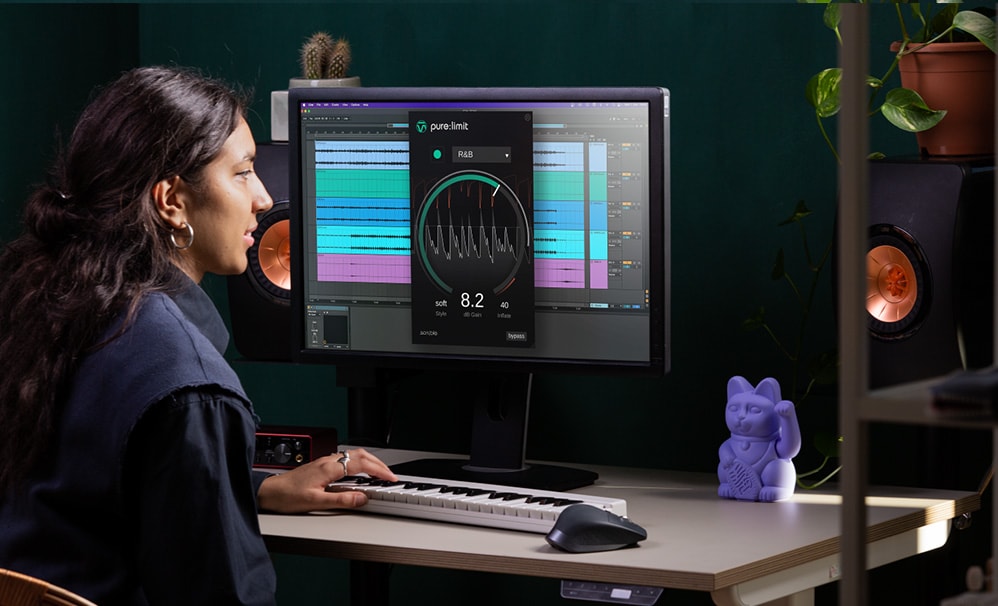 In this article, we will be highlighting some of the major benefits of digital music production gear covering advantages in sound, workflow and capabilities. To be clear, this isn’t an article written to bash analog gear — we just want to give digital tools the credit they’re also due.
In this article, we will be highlighting some of the major benefits of digital music production gear covering advantages in sound, workflow and capabilities. To be clear, this isn’t an article written to bash analog gear — we just want to give digital tools the credit they’re also due.
Digital software allows producers to be almost infinitely precise when it comes to setting parameters. Whereas dials on analog gear generally allow producers to set parameters to ballpark figures, digital software allows precise tweaking.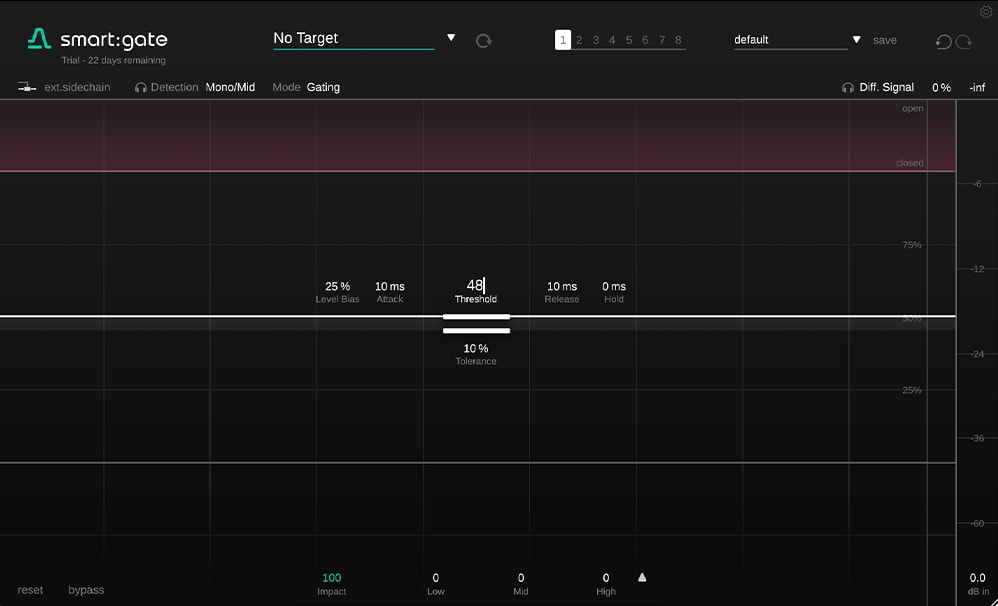 This precision allows you perform clinical actions such as cutting out specific resonant frequencies, compressing audio by a very precise amount, or setting a gate threshold to a 0.1dB resolution.
This precision allows you perform clinical actions such as cutting out specific resonant frequencies, compressing audio by a very precise amount, or setting a gate threshold to a 0.1dB resolution.
That said, there are also advantages to the more broad-brushed methodology of analog gear. If you are using processors to add character to your sound, then lack of precision can sometimes be preferable. It really depends on the type of music you are working with, and your personal artistic preferences.
However, when it comes to the more technical and utilitarian side of mixing and mastering, precision is always advantageous, and digital is unmatched in that field.
As we’ve mentioned previously, analog fans often choose analog gear for the character it can add to audio. However, often when working on tracks, music producers simply want to process their audio without adding any saturation.
For example, you may have a vocal part which you have already saturated, but that has too great of a dynamic range. This situation calls for a compressor, however, we wouldn’t want to add any more color or saturation to the signal. In a scenario such as this a digital compressor is ideal.Consider also the idea of adding multiple processors to a single channel. In the analog domain, each device the signal passes through will color the sound or add to the signal’s noise floor. With digital, you can instantiate many different plugins without an inherent change to the signal, until it’s dialed in using the plugins’ parameters.
smart:comp 2, for example, is a digital compressor with a very clean and clear sound. It uses spectral processing to compress sections of the frequency spectrum separately – think of it as a very high-resolution multiband compressor. This super precise method of compression would be incredibly hard to achieve with analog equipment, and would undoubtedly cost an arm and a leg.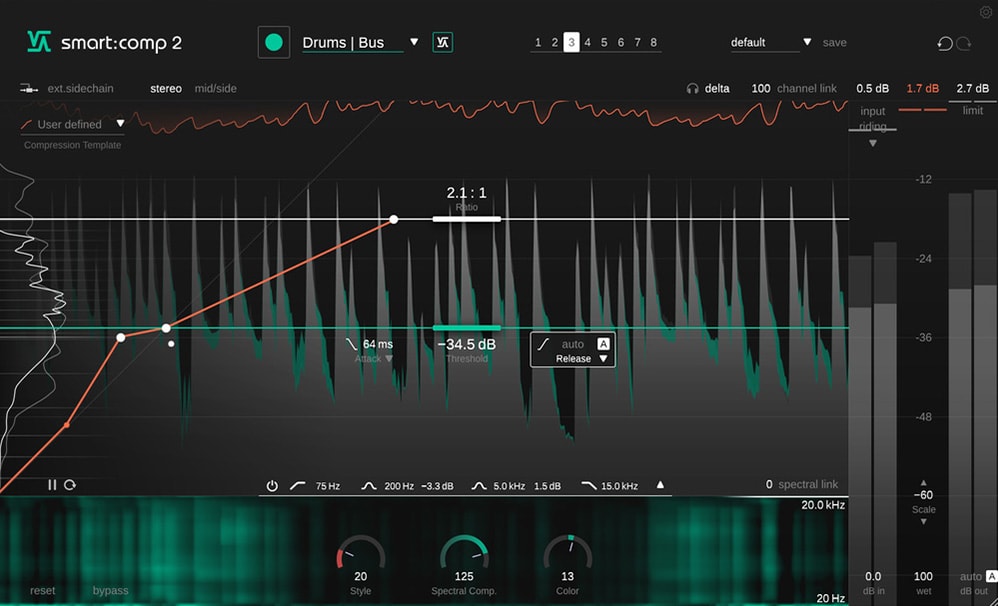
When working with an analog compressor or limiter, the effect can only react to audio when it’s played into the processor. This all happens in real time.
Therefore there is always an attack period of the compressor or limiter. With digital compressors or limiters loaded in a DAW, producers can introduce latency, essentially allowing compressors to see a few milliseconds ahead and to respond to audio before it actually plays. This means. Unlike with analog processors, you can have an instant attack, or even start compressing before the input signal plays, should you wish.
This sort of technology has made concepts like brickwall limiting and through-zero flanging possible.
Digital software is able to take advantage of new developments in technology, and incorporate that technology into their architecture very quickly.
One big example of this is the recent advent of the use of artificial intelligence and machine learning in music production software.
At sonible, we have been at the forefront of this movement for years. Our smart and pure range of plugins all use artificial intelligence to make context dependent, smart mixing decisions for you.Our pure bundle is designed for quick and easy use. pure:EQ, pure:comp, pure:limit and pure:verb all listen to and analyze your audio, then filter, compress, limit or add reverb in a complimentary way. You can tell each plugin in the pure bundle what source material it is processing, and this will influence the parameter settings.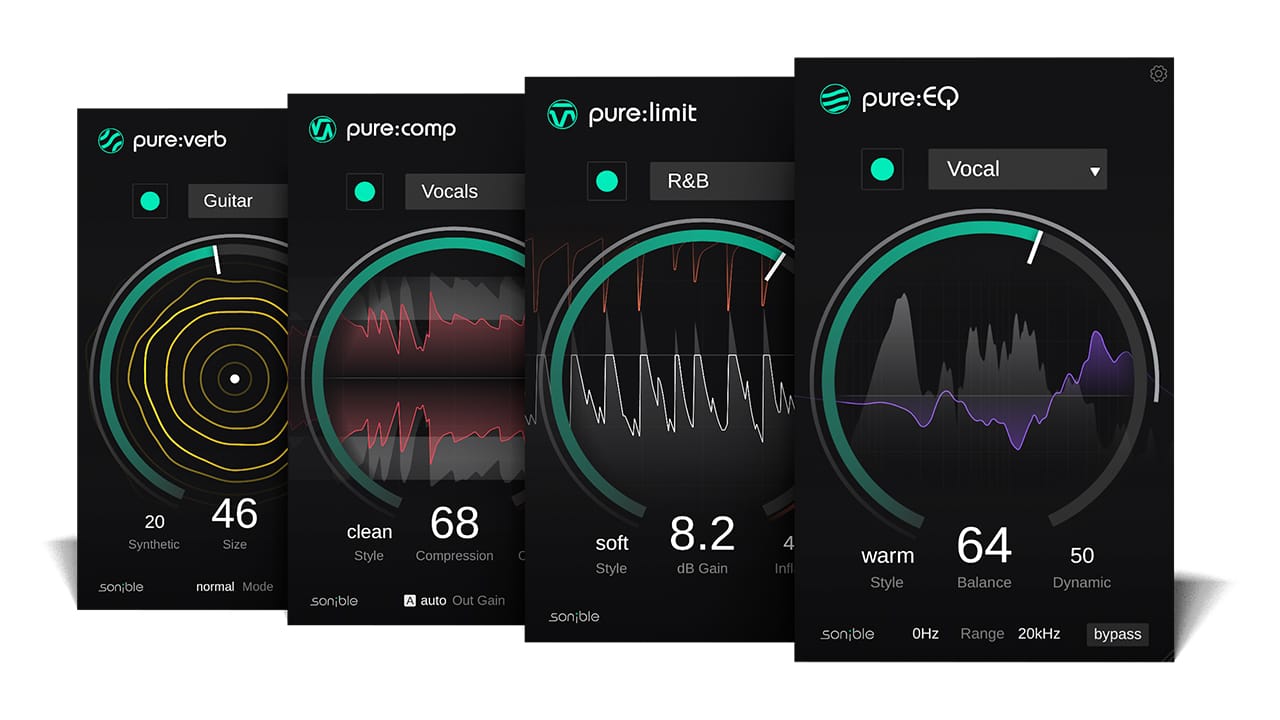
The smart range offers similar functionality but in a more advanced package. Once the intelligent processing is applied you have a large range of parameters with which you can tweak the sound as you see fit, using the AI suggested parameters as a very strong starting point.
“Use your ears” is an old adage taught by tutors at every music production school around the world. It’s an important skill to be able to make decisions based on what you hear, however it doesn’t mean that using visual feedback when mixing and producing is a bad thing.
Digital plugins are able to provide richly detailed and instantaneous feedback and information in a way that analog cannot.This visual feedback is part of the reason why digital synthesizers such as Serum – with its intuitive and visual modulation system – became so popular, propelling it into legendary status in the music tech world.
Of course, powerful visual feedback is not limited to synthesizers. Compressors, EQs, gates and almost every type of digital audio effect now offer visual feedback in a way not seen on hardware units.
A prime example of this is true:level, one of sonible’s metering plugins. true:level visualizes the interplay between loudness and dynamics in a meaningful way, letting you know whether a mix or master is ready. This extra information is invaluable, especially in a world of streaming where platform optimization is essential.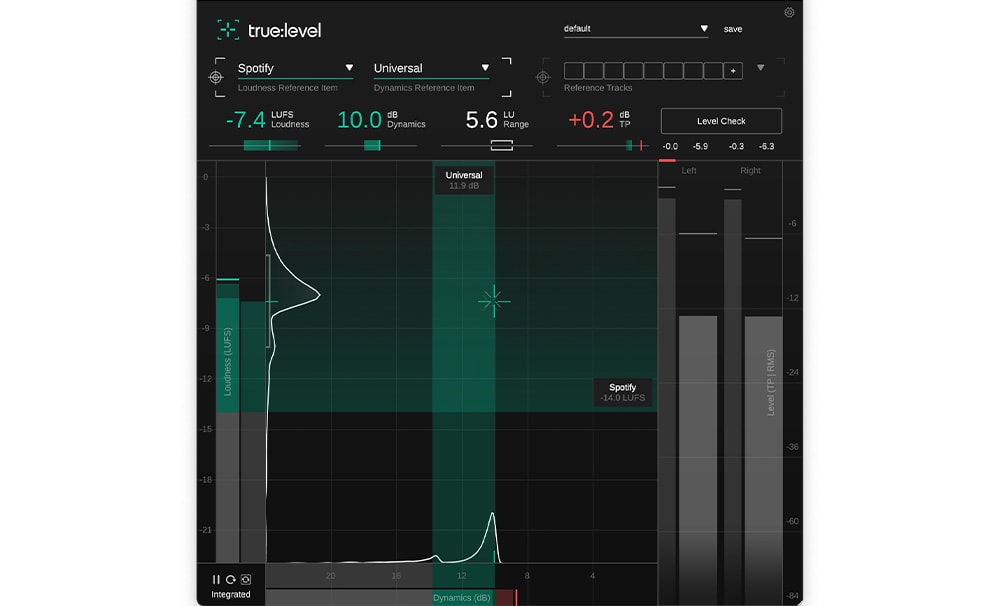
One of the biggest advantages of using digital gear is the convenience. When using a digital plugin you can use as many iterations of any one plugin in a project as you like. Changes to parameters can be made on the fly and saved into your DAW project automatically. You can also record automation, whereas, if you were using analog gear, any changes to parameters throughout the track would have to be made by hand and recorded in audio form.
Our range of digital, AI powered plugins make powerful and precise mixing possible for producers of all abilities.
Experienced audio professionals will benefit from our smart range of plugins. smart:limit, smart:EQ 4, smart:comp 2, smart:gate and smart:reverb 2 provide advanced and innovative controls for hands on tweaking, whilst also providing an AI backbone for quick and great sounding results.
For newer producers and those looking for fast, professional processing, check out our pure range. pure:EQ, pure:comp, pure:verb and pure:limit use AI to apply fast and context dependent filters, compression reverb and limiting in seconds. You can then adjust the level of processing with simple but powerful controls.
Our two true plugins – true:level and true:balance – provide loudness and spectral metering which is particularly useful for mixing and mastering engineers. That said, producers working at any stage of the music production process will benefit from their powerful visualization abilities.